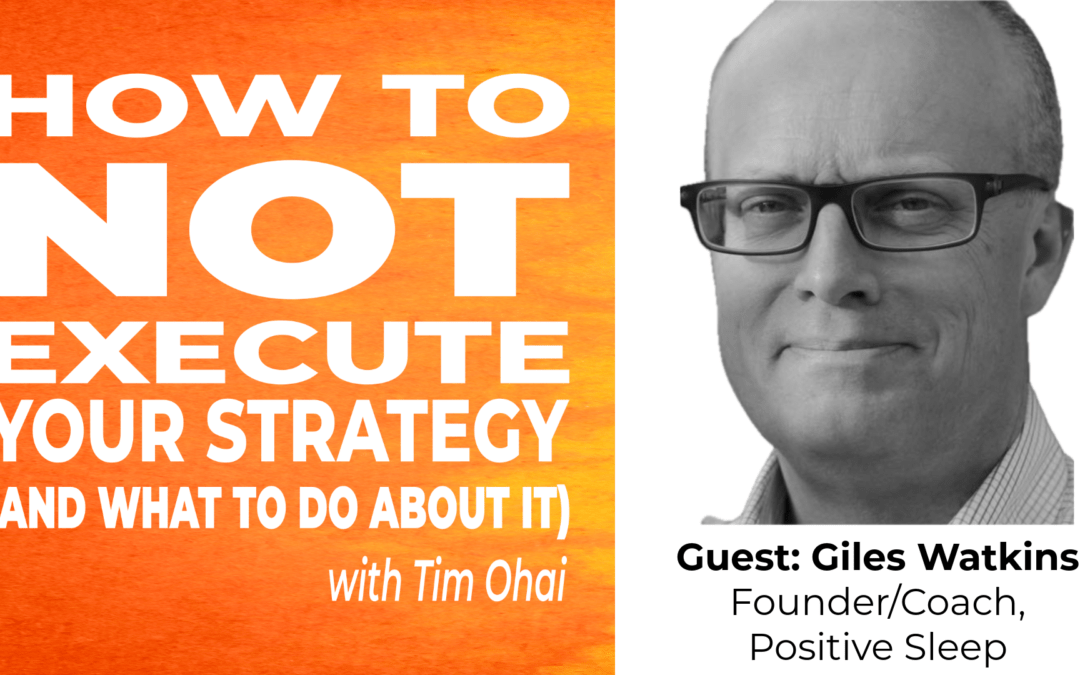How to NOT Execute Your Strategy (S2E6): Giles Watkins
Giles Watkins is the former Chair of Vistage UK, the world’s leading executive peer-group organization for Managing Directors, Chief Executives and other business leaders. He is also the author of Positive Sleep. His experience in a wide variety of executive management roles in many countries gives him a powerful perspective on the principles that work no matter where you are in the world. One of these principles is the power of healthy sleep and in this episode, we explore how the lack of sleep affects literally every decision you make.
- Find the audio version on your favorite platform or go directly via RSS.com
- Watch this episode on Youtube
Three key concepts:
- Be very careful letting other people make your decisions for you. While their inputs may be culturally correct, their decisions may be wrong. Have courage and listen to your gut.
- Do not underestimate the value that new people bring to your culture – even if they don’t quite “fit the culture” yet. They have a fresh set of eyes that will see what everyone else might actually be missing.
- If you are not sleeping enough, you are NOT operating effectively. You will miss critical information – including small things like nonverbal cues – that will help you make the best decisions.
BONUS – Leader guide: Use the following questions for (a) self-reflection as a leader and/or (b) a great discussion with your team.
1) Listen to the full episode before this discussion.
2) Honest question: Do you think you are getting enough sleep? Why or why not?
3) In 10 words or less, define the most common obstacle that you believe affects someone’s ability to sleep consistently. Share your answers.
4) Giles talked about how sleep is broken into two main stages of a typical 8-hour sleep cycle – the first half (which is focused on physical recovery) and the second half (which is focused on mental integration). What do you think are the most common signs that someone is falling behind on their physical recovery and/or their mental integration?
5) When people don’t get enough sleep, the wrong decisions start to become more common. Are we potentially making bad decisions that could be avoided by better rest? Why do you think this?
6) Looking at our efforts now, what should we be doing to ensure that we protect the health of our team? Note: this may include factors that affect sleep (like working late hours, consumption of alcohol in the evening, etc.), but it could include other things as well.
7) Option: Take time right now to define exactly what that looks like (the outcome(s), metrics, and requirements).
If you enjoyed this episode, please share it with at least one person. And leave me a review on whatever platform you engaged this podcast. Your feedback is invaluable to me.
Holomua. Onward and upward.
All the best ~ Tim
PS Like what you’re reading? Please share this content with a friend so they can join the community.


Recent Comments